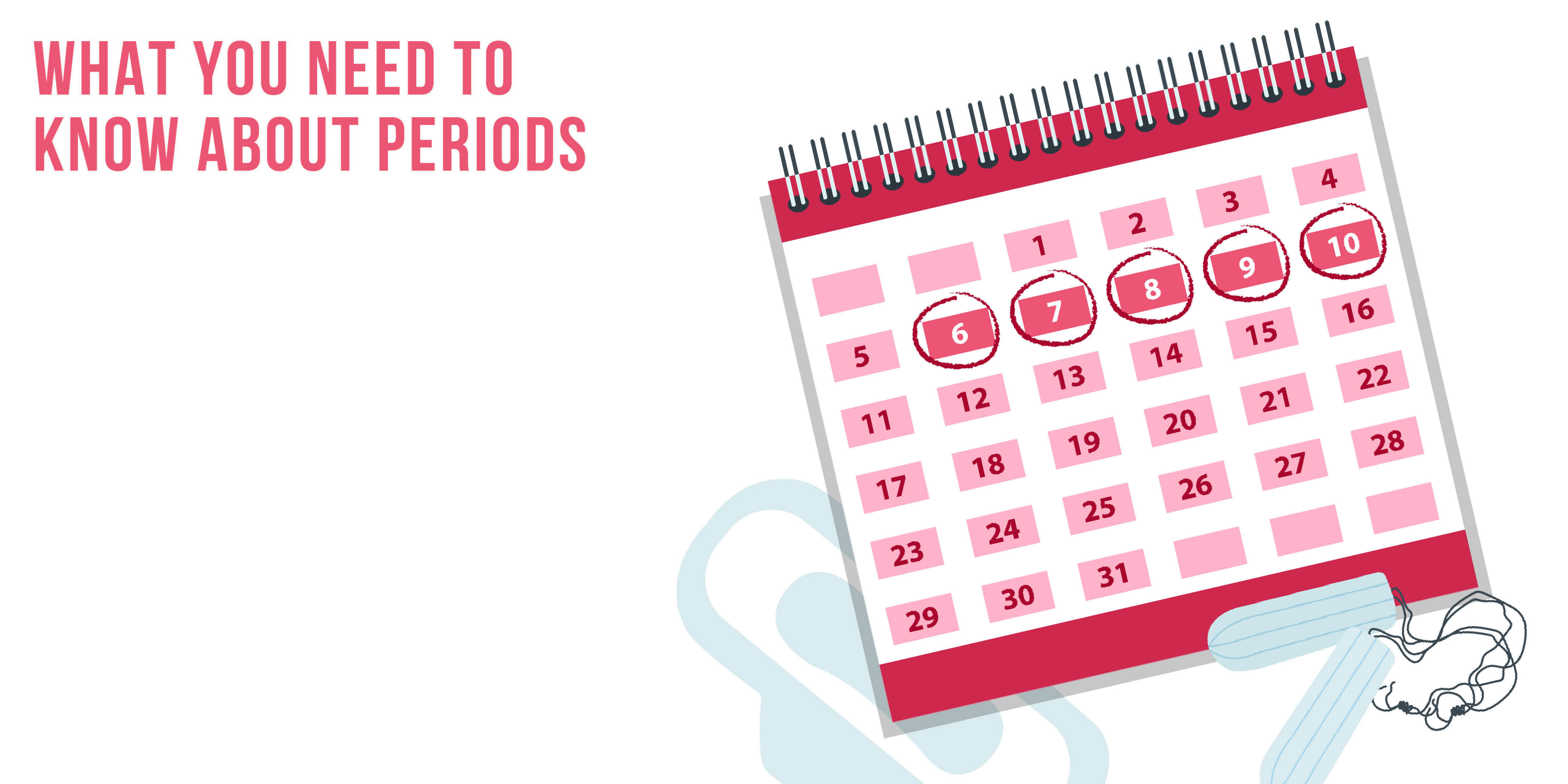What you need to know about periods

Periods always feel like a rather unfortunate thing, but it is something that many individuals have to go through. This article will explore everything you need to know about menstrual cycles for those who have them and for those who want to learn a little bit more about what is happening in a body during this time.
HOW IT WORKS
The majority of people learned the ins and outs of menstruation in elementary and high school health class, but how much of that information was actually retained? It is important for people to understand what is going on during the menstrual cycle instead of just picking up a tampon or pad when menstruation starts. The menstrual cycle is broken up into four phases and lasts an average of 28 to 35 days.
MENSTRUAL PHASE
When menstruation begins, it marks the first day of the menstrual cycle. The lining of the uterine wall breaks down and sheds in the form of menstrual fluid. The uterus and abdominal muscles contract making it common to experience cramping. This phase lasts an average of one to five days.
FOLLICULAR PHASE
This phase begins at the same time as the menstrual phase and lasts approximately 13 days. The follicle stimulating hormone (FSH) stimulates egg cells and one of the eggs begins to mature in the ovaries. The uterine wall begins to thicken again with blood vessels and soft tissue so it is able to support the egg if it becomes fertilized.
OVULATION
This stage lasts 12 to 24 hours and it is when most menstruating individuals have the highest chance of pregnancy. The egg is taken through the fallopian tubes and is released into the uterus. If the egg comes into contact with sperm it will become fertilized. During this phase many women may notice a boost of energy and an increase in sex drive.
LUTEAL PHASE
This phase usually begins on day 15 of the menstrual cycle and lasts until the end. Progesterone is a hormone that continues to build up the lining of the uterus to prepare for pregnancy. If the egg is not fertilized during ovulation it will disintegrate and the uterine lining will begin to break down and lead back into the menstrual phase to begin the cycle again.
MENSTRUAL PRODUCTS
Menstrual products are a personal choice for people and there are several products and brands available. Tampons are discreet and comfortable and can lead to a shorter period because they soak up fluid as soon as it leaves the cervix. However, one must be careful, as tampons do pose a threat for Toxic Shock Syndrome (TSS) which is a bacterial infection caused when the tampon is used for too long and absorbs the natural lubricants that prevent infection. It is important that an individual chooses the proper absorbance needed and change their tampon every four to eight hours. Sanitary pads are another option and they are an easy to use tool without the risk of TSS. If not changed regularly though, they can lead to infection and/or a rash. Similar to tampons, pads also contain bleach which can cause cancer. Menstrual cups do not contain bleach or chemicals or cause TSS, which makes them less of a risk compared to tampons and pads. They are reusable and collect three times more fluid than a super tampon or sanitary pad which means fewer changes. Menstrual cups require sterilization and they are more difficult to insert than a tampon.
REMEDIES FOR PERIODS
Almost every person who menstruates has heard the words, “take a Midol” when they are on their period. However, Midol is not as effective as other drugs and can cause stomach irritation and liver problems if taken too frequently. Other over the counter (OTC) drugs that can help with period pain include Ibuprofen (Advil and Motrin) and Naxopren (Aleve) and have been proven to work better than Midol according to Dr. Felice Gersh, of the Integrative Medicine Group of Irvine. For more serious cramping, the prescription drug, Celecoxib, will provide more effective relief and is easier on your stomach than OTC drugs, Gersh said. Other strategies to deal with cramping includes yoga, hot baths, or putting a hot water bottle on the pelvic region.
IRREGULAR AND HEAVY PERIODS
People are different when it comes to their menstrual cycle and it is common to experience heavy or irregular periods. The average amount of fluid during menstruation is 30-40 millimetres. Heavy periods, also known as Menorrhagia, usually involve 60 millimetres or more fluid. If you require a change of tampon or pad every one to two hours, pass large blood clots, or feel anaemic during your period you probably experience a heavy period. Oral contraceptives or hormone supplements can often be used to deal with Menorrhagia.
The average length of a person’s menstrual cycle is 28 to 35 days and bleeding usually lasts between three to seven days. Most women will experience an irregular period at some point in their lives. Common causes of irregular menstruation include medications, stress, puberty, birth control or emergency contraception. If you are experiencing heavy or irregular periods or a sudden change in your menstrual cycle you may want to consult a doctor for a check up.














